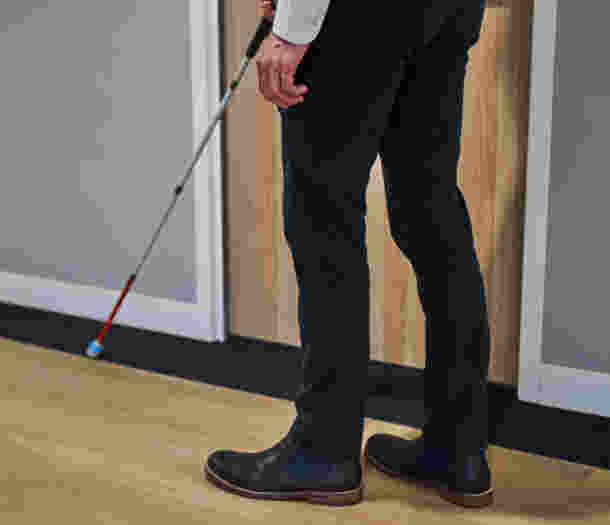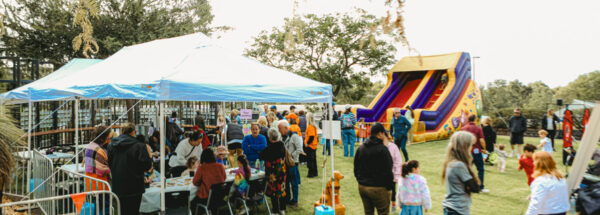On this page:
Connected Together, was a Guide Dogs Australia national project which aimed to support community and peer support activities for people living with low vision and/or blindness, carers, family members and their support networks.
The project was funded by the Information, Linkages and Capacity Building (ILC) Social and Community Participation Grants, Department of Social Services, Australia Government. The project was a post COVID-19 initiative, delivered from June 2021 to June 2024.
Over the life of the project, 52 peer groups were supported to engage in over 400 activities, inclusive of sport and recreation, art and culture, or general social and community connections. These activities were in person, online or via telelink.
Guide Dogs Australia wishes to acknowledge and celebrate the individual and collective expertise of peer groups with lived experience across Australia, their drive, leadership and ongoing commitment was pivotal to the design and the impact of the project.
One such peer leader was Kadek, who facilitated a series of Brazilian Jujitsu workshop…
Brazilian jujitsu is a sport full of contradictions, but it makes perfect sense to Kadek
The 33-year-old is semi-professional is racking up accolades across the sport.
Kadek is also completely blind.
Losing vision in both eyes from separate accidents, Kadek took up the sport of Brazilian jujitsu in 2020 after struggling for connection during the pandemic lockdowns in Melbourne.
New to the city, jujitsu was a gateway to a new community for Kadek.
“Jujitsu is great for your mindset, your balance, your confidence, basically everything,” he says.
That’s why it was important for Kadek to share the experience with his peers in the low vision community.
With a grant in hand facilitated by the Federal Government and Guide Dogs Australia, Kadek hosted his own Brazilian Jujitsu workshop.
The come and try session was divided into an hour of jujitsu and an hour of socialising.
“I wanted to start a gateway for people, to introduce them to the sport and help them make connections their local clubs and community,” he said.
Because jujitsu is a contact sport and is about feeling through movement, it’s a perfect sport for those with minimal vision.
“It’s very accessible, the sport is grappling, so you’ve got wresting, judo and jujitsu all in one,” he said.
Kadek hopes to keep introducing the low vision and blind community to the sport, and make it something that is as common as orientation and mobility training or assistive technology training.
“It’s great for our confidence, yes you can learn a lot through your computer but what’s the point when you’re afraid to go out?” he said.
He wants people to feel like they are equipped with strategies to increase confidence in accessing their local communities.
As Kadek continues his pursuit of jujitsu championship gold, he also hopes to continue bringing the sport to the low vision and blind. Watch this space.
Connected Together was made possible through the Information, Linkages and Capacity Building (ILC) grant program, which aimed to ensure that people with a disability, their families and carers are supported to take part in, contribute to, and benefit from the same community activities as everyone else.
Ready to continue?
Seems like you have filled this form earlier. Let’s pick up where you left off.

